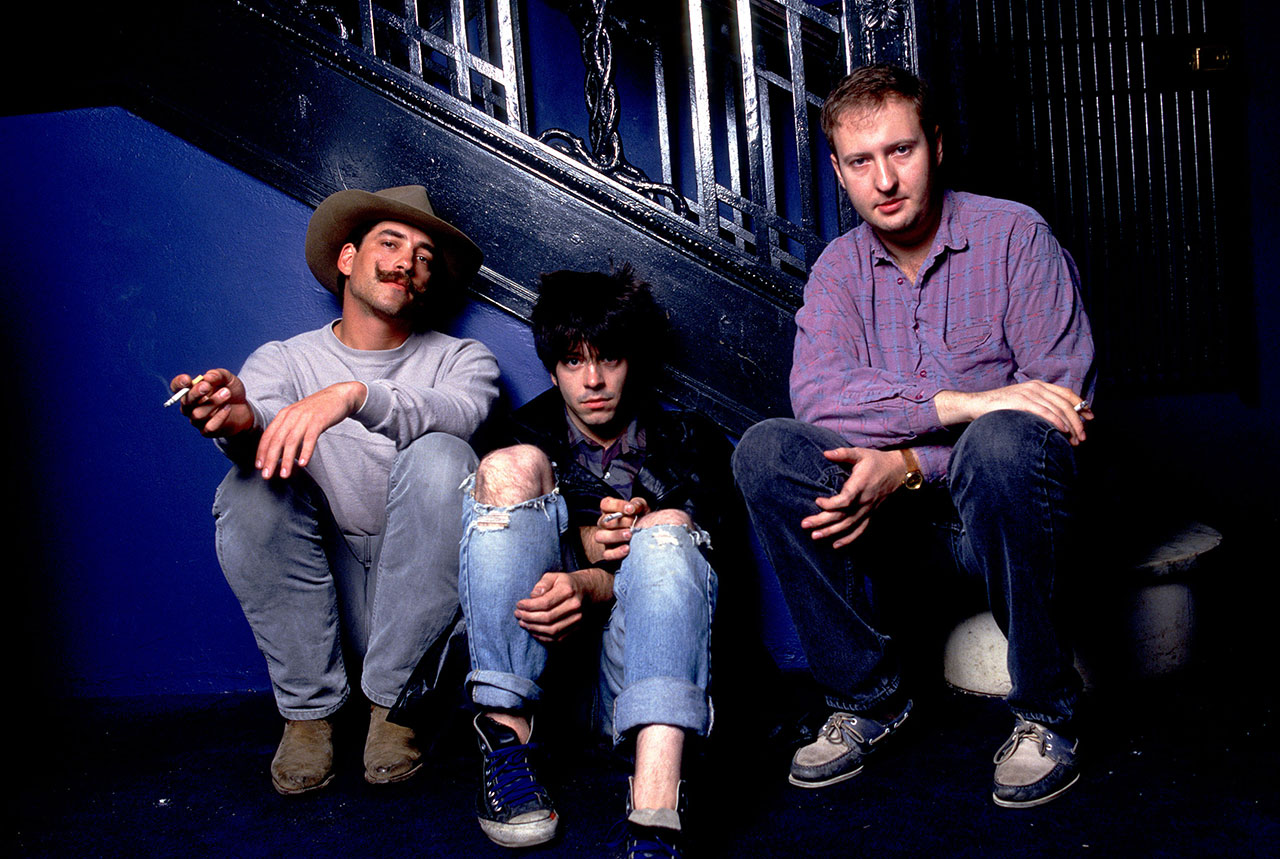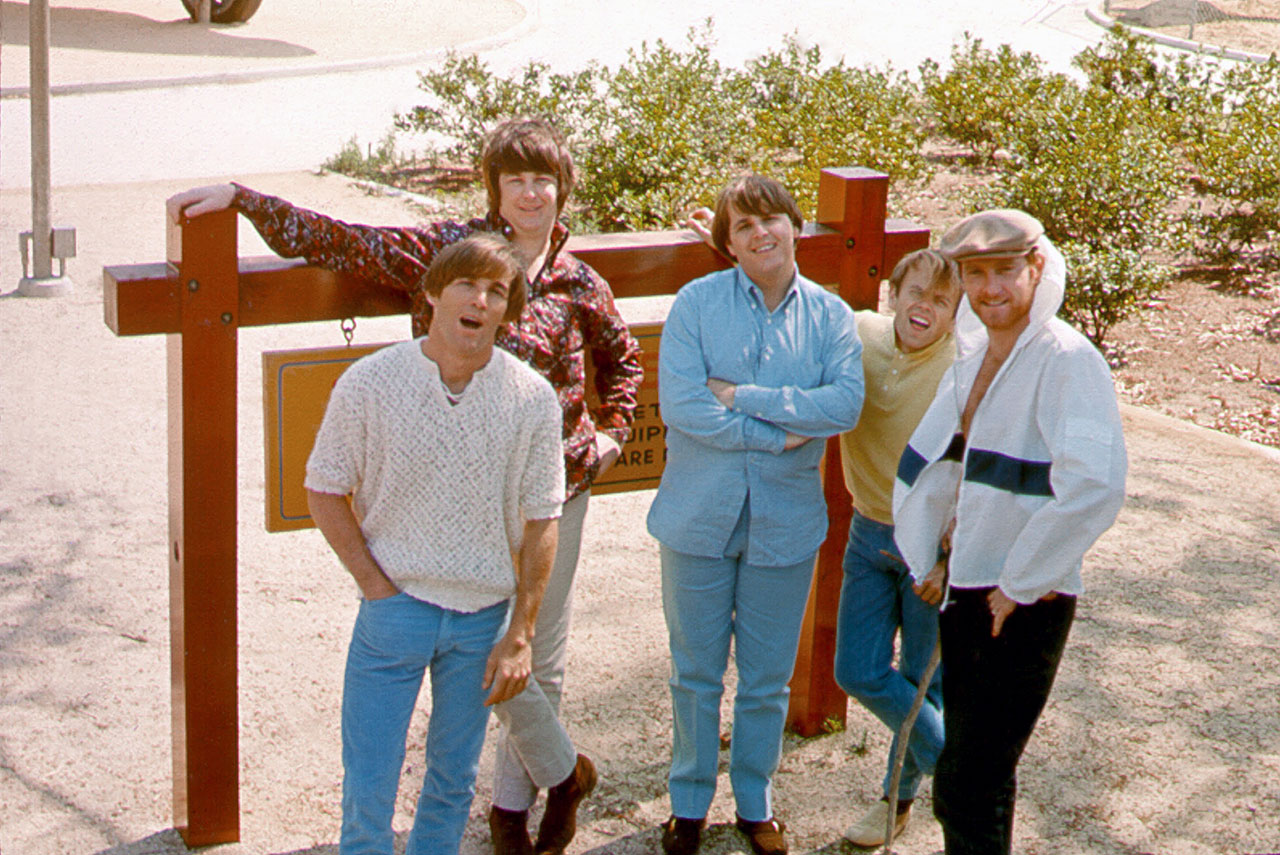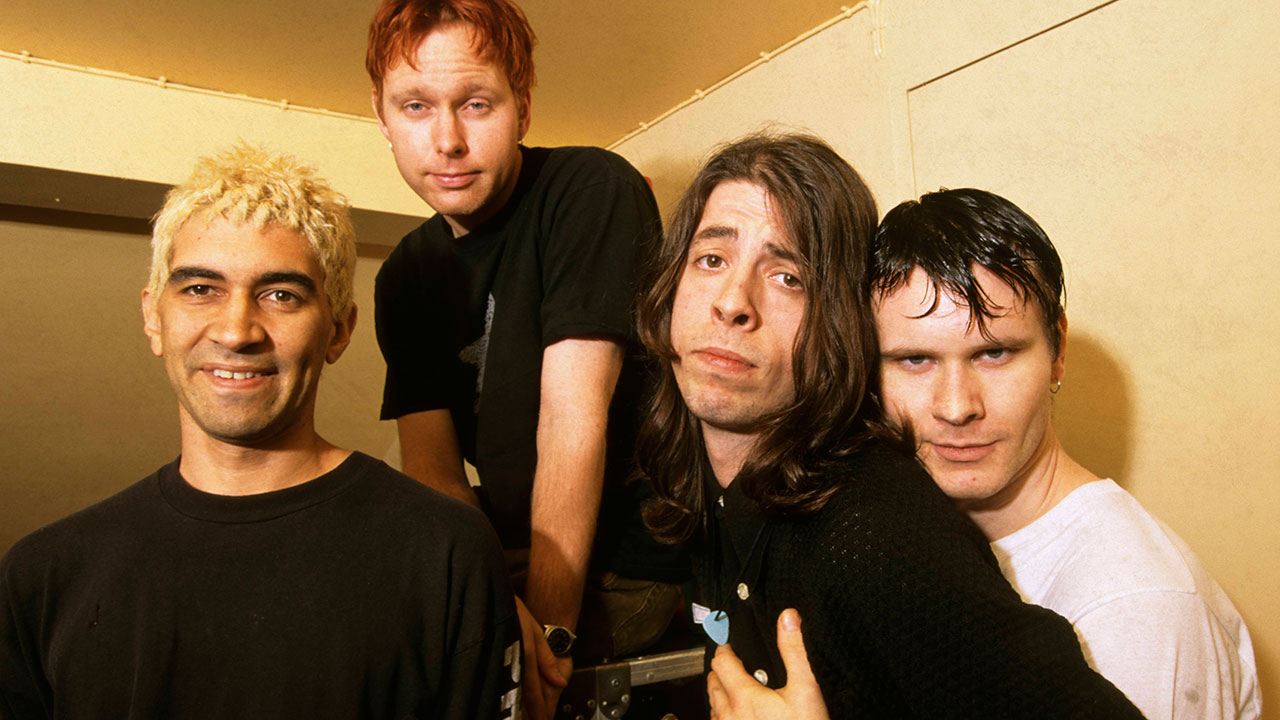Their sound may have only got more powerful and polished since the days of Dave Grohl knocking up records entirely on his own, yet the influences on the Foo Fighters’ music remain true and constant nine albums down the line. Obviously, the shadow cast by their leader’s past is inescapable – the devastating start-stop, quiet-loud dynamics of Nirvana are also firmly inherent in the Foos. Kurt aside, they were as much Dave’s to keep as anyone’s. Yet scratch around the surface, dig that little bit deeper, and both the obvious and not so obvious are at play here…

Pixies
As much the godfathers of grunge as any other band, the now-reformed Pixies perfected that leap from restrained lull to explosive surge, while incorporating screams surely sent from the stars, choruses about aliens to bark along with, and melodies beamed in from whole higher dimensions. Kurt openly adored them. Dave obviously does too. Kim Deal’s Breeders, at their best of a similar ilk, also deserve a noble mention at this stage.
Dinosaur Jr
Often ignored in the legacy of the scene their sound helped create – until their reformation and subsequent album reissues revived memories of their slumbersome supremacy – Dinosaur Jr made three pre-grunge records that provided the template for much that followed, including Nirvana. J Mascis was also the greatest guitarist of his generation, if usually unwilling to lift himself out of his bed to prove it.
Neil Young
Whether electric or acoustic, alone or surrounded by Crazy Horse, singing songs or endlessly axe-ing, Neil Young’s imprint on Nirvana and the whole grunge generation was huge, right down to having his lyrics quoted on Kurt’s suicide note. Young at his tightest and most melodic is certainly resident in the Foo Fighters; Young downbeat and personal often comes to mind on their acoustic set.
Hüsker Dü
The ultimate post-punk, pre-garage trio hell-bent on locating the precise mid-point between pleasure and pain, all shot through with sand-blasted melodies – seek career highlight Candy Apple Grey for firm evidence of this, like a punky Beatles on speed – Hüsker Dü lived fast, died young, and left a perfectly influential musical corpse. The raw feel of the Foos’ debut confirms that Grohl has picked over their remains more than once himself.

Various Grunge Outsiders
In their most no-nonsense moments, Nirvana’s ex-Sub Pop partners Mudhoney spring to mind. When disharmony threatens to overshadow melody, Dirty-era Sonic Youth pop in there also. At their most epic and overblown, Soundgarden spring up. When Dave is deep down and devastated, Lou Barlow’s Sebadoh hover close by. There’s also no denying Sunny Day Real Estate’s emo bass and ex-drum input to the Foos’ work either.
Led Zeppelin
Not an obvious influence: Grohl cannot wail like Plant or solo like Page, and nor can Nate Mendel play bass like Jones, yet no drummer has influenced Grohl quite like Zep’s John Bonham. No-one since Bonham has thumped his kit as furiously as Grohl does. For evidence of his devotion, examine Grohl’s tattooed arms for the Zeppelin symbol of Bonham. No surprise that John Paul Jones and Grohl went on to form supergroup Them Crooked Vultures, either.
The Who
Grohl himself claims not to be such a big fan of The Who, though his band-mates increasingly line up to pay homage to Townshend and co., especially with certain moments of In Your Honour. Grohl really shouldn’t be so shy – pop-rock with sublime high/low surges isn’t his specialist subject alone. Pete Townshend was there years before. Come to think of it, isn’t there more than a touch of Queen about some of the Foos’ more elaborate moments?
Motörhead
Sure, there’s no Ace Of Spades in the Foo Fighters’ repertoire just yet, but their ability to graft hard melodies onto heavy moods does echo that of Lemmy and co. Grohl’s tribute continued on the Probot project, where his primeval pummelling locked horns with Lemmy, as well as several members of the extreme metal scene. Grohl rocks it fiercely, no matter how much his occasionally goof-ball demeanour attempts to disguise it.
The Ramones and AC/DC
Despite recently suggesting that he didn’t wish to follow either of these bands’ one-dimensional route to success – i.e. take a tune, albeit generally a very good tune, and repeat it endlessly over several albums – the soda-pop sheen, hooks-a-plenty harmonies and sense of the absurd, also informs Grohl’s time at the forefront of the Foos. Catchy choruses, similar to both, are something Grohl is more than capable of himself.
Killing Joke
His guest appearance, armed with serious shit-kicking sticks, on their umpteenth self-titled 2003 album confirmed it: Dave Grohl is a fan of Jaz Coleman’s crew, and of their epic, overblown and seriously self-important industrial rock. But Killing Joke are also seriously intense, and this intensity is hardly a stranger to the Foos’ records.
Various Punk And Hardcore Bands
You may only hear it sporadically within the Foo Fighters, and just a touch more in Nirvana, but as Grohl confesses on the sleevenotes of his Probot project, “By 1982, I was a full-on, red-blooded hardcore kid”, obsessing over bands such as Bad Brains, Black Flag, Dead Kennedys and Minor Threat. Its heavy-hitting philosophy informs his punk attitude to this very day.
Beach Boys
Easy to ignore, and harder still to notice perhaps, but the Foo Fighters have the ability to cover their heaviest moments in the most sugary of coatings. OK, so there are few circling sing-alongs on The Colour And The Shape, There Is Nothing Left or any other FF album, but re-examine those soaring melodies, irresistible hooks and upbeat vibes at times, and Brian Wilson is certainly there. As are Weezer, if you’d care to admit it.

Teenage Fanclub and Pavement
No, it’s not always so visible these days, but back in the day, with opening lyrics such as, “Finger-nails are pretty/Finger-nails are good” the idiosyncratic, rambling lyric sheet of Steve Malkmus had surely been gently thumbed by Dave Grohl. And the endlessly feel-good charms of Teenage Fanclub not only seduced Kurt, but clearly also his old drumming colleague, in small doses.
Elliott Smith
His isn’t an obviously heavy hand on the Foos, yet Smith’s Nick Drake-esque torch songs seem to have touched Grohl, like many others, in recent years. Occasional past Foos moments have hinted at it, but the second disc of In Your Honour confirms it. Elliott-esque broken balladry comes as naturally to Grohl as hammering the shit out of his tubs. Smith, of course, like Cobain, tragically took his own life at the peak of his musical powers.
The Replacements
Pop-addled college rockers The Replacements formed in 1979, and spiritually existed somewhere between REM, Hüsker Dü and Big Star. Their bittersweet post-punk intensity is, if not a direct relation to, then at least a familiar distant nephew of the Foo Fighters. Then Paul Westerberg curated the Singles soundtrack, and The Replacements’ circle back to the very heights of the grunge scene was complete.
Cheap Trick
To some, the Foo Fighters took most from this lot. “This band has no past”, stated Cheap Trick’s debut LP in 1977, but their future was to (not exactly quietly) influence stadium-sized rock acts for decades to come, albeit without them reaping their own rewards. As tuneful as The Beatles, as loud as The Who, with an all-knowing self-deprecation as high as the sky. Sound familiar to anyone?
This article originally appeared in Metal Hammer Presents: The Foo Fighters
